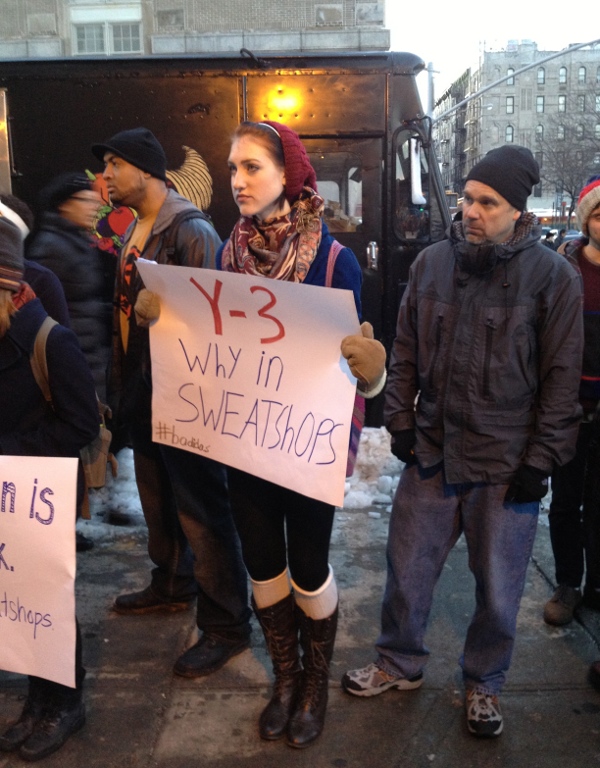
By Andi Sosin and Joel Sosinsky, The Remember the Triangle Fire Coalition
The definition of a sweatshop has not changed over the past 100 years. It’s not because hard work makes workers perspire that factories in much of the third world are still referred to as sweatshops.
Tazreen Fashions Ltd., the Bangladesh factory in which 112 workers died behind locked doors in a fire last November, was a sweatshop that operated at the beginning of the global supply chain, which is best described as a linking of businesses that deliver products made in low-wage countries like Bangladesh to retail stores owned by giant multi-national corporations.
Huge apparel retailers like Wal-Mart, Target, Kohl’s, H&M and designers like Nike, Adidas, and other major US and international clothing brands, routinely source their production through suppliers and other sub-contractors, middlemen who steer work to up to 1,500 factories in different countries. Modern container shipping technology has made it possible for almost any item to be manufactured anywhere in the world at the cheapest possible price.
To maintain their profit margins, these sub-contractors keep their costs low by countenancing substandard working conditions and by reducing wages to squeeze out greater productivity from workers. For example, garment industry workers find out that instead of making seventeen cents for each shirt they sew, they will be making only sixteen cents per shirt. They then have to work harder and sew more pieces just to make the same amount of money. This exploitative practice is called sweating the workers. Sweatshops that dehumanize work and exploit workers have always been a feature of cutthroat capitalism.
Over a century ago, young, immigrant sweatshop workers had just been on strike fighting for living wages and safer workplaces when they died behind locked doors in the New York City Triangle Shirtwaist Factory Fire of 1911. The public outrage and activism following the Triangle fire compelled politicians to enact safety regulations and social legislation that still protects workers today; enabling a labor movement that built the American middle class.
Now, as labor unions worldwide struggle to help workers survive, we have to remember that organization is the only way for working people to prevent naked cutthroat capitalism from harming workers through re-imposing sweatshop wages and cutting costs by allowing dangerous working conditions.
Extreme poverty in itself is the most pressing human rights challenge of our times. Only by advancing economic, social and cultural rights and the political participation of working people in solidarity all over the world can we make progress happen for our own society.
The Remember the Triangle Fire Coalition is leading efforts to install an inspiring permanent public art memorial in New York City at the site of that tragic fire. Remembering the Triangle fire, and how in its aftermath solidarity and activism became a progressive force that bettered workers’ lives, should remind us that when citizens get together in common cause, their lives, their children’s lives, and everyone’s prospects for the future improve. For more information, visit http://rememberthetrianglefire.org or contact the Remember the Triangle Fire Coalition at Info@rememberthetrianglefire.org.
